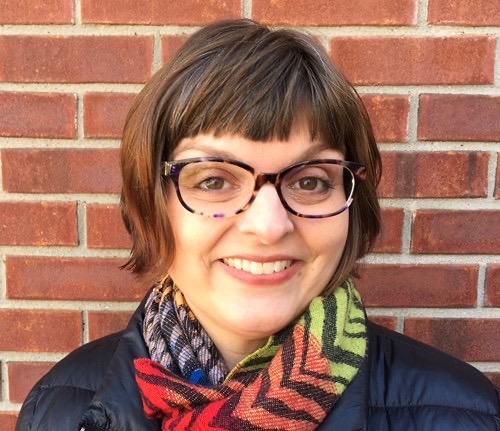March is Women’s History Month, an opportunity to recognize and give the spotlight to incredible women across the world. However, you don’t have to go far to find amazing and accomplished women. All over campus, USI has its own female trailblazers who have made big moves and impactful contributions to their fields of study.

Rosalie Moffett, assistant professor of English
Rosalie Moffett, assistant professor of English, attended Louis & Clark College, a private liberal arts college in Portland, Oregon, and received her MFA at Purdue University.
She is most proud of the publishing of her two collections of poetry. The first was published in 2017, entitled “June in Eden,” and her second, “Nervous System,” won the national poetry series through Ecco, a division of HarperCollins. Moffett also announced that her third book, “Making A Living,” will be published in 2025 through Milkweed Publishing.
With these achievements in mind, Moffett says a proud and “game-changing” moment in her career was being awarded the Wallace Stegner Fellowship at Stanford University.
“This was an extremely competitive and selective two-year program of workshopping with other amazing poets,” Moffett said. “This fellowship greatly developed my craft.”
Moffett said her favorite moment in women’s history involved writer Phillis Wheatley, the first African American poet to be published in America.
“Her work inspired women and people of color alike to make art and surpass boundaries,” Moffett said.
Moffet said Wheatley once recounted what it felt like to be inspired. Moffet said when Wheatley worked outside, it would hit her. Moffet said Wheatley had this feeling that she had to run to wherever she could write down her ideas and poems.
“She would run through the fields and transfer this poem that had hit her like lightning, striking down to the page,” Moffett said.
If you would like to learn more about Moffet’s work, click here.

Amy Montz, professor of English
Amy Montz, professor of English, has been very active in the movement for women’s rights.
“With the debates going on in politics right now, we are under fire in a way that we have not been in years,” Montz said.
Montz said she is most proud of getting her Ph.D. after spending two years in graduate school to get her master’s, two years to teach and six years in her doctoral program.
“I’ve received a lot of familial support, especially from my father,” she said. “I am also proud to have been promoted to full professor here at USI this year.”
Montz writes both academically and creatively and is working toward publication.
“Writing academic papers while also having a full course load of students can be challenging, but the university and the College of Liberal Arts have been very helpful and supportive,” she said.
Montz said her favorite moment in women’s history involves the Married Women’s Property Act of 1882 in England.
Before the act was passed, women had no control over their inheritance, whether that be marital or familial, and also had no rights to their children in the event of a divorce. This was on top of women’s suffrage, which was women fighting for the right to vote.
“The passing of this act marked one of the first major steps toward getting women treated as citizens and worthy of the vote,” Montz said.
If you would like to learn more about women’s movements, especially in literature, check out “Female Rebellion in Young Adult Dystopian Fiction,” written by Montz.

Sarah Stevens, director of Honors Program and Living Learning Communities
Sarah Stevens, director of the Honors Program and Living Learning Communities, said she is most proud of getting her Ph.D. in Chinese, writing her novels “Dark Moon Wolf (Calling the Moon)” and “Rising Wolf (Calling the Moon)” and multiple short stories.
“I am most proud of my development as a professional writer, and the opportunities for publication are more personally meaningful,” she said. “I’m also proud of the work I have done in the honors program and the curricular advancements and changes I have been able to make to help students grow and succeed in the honors program.”
Stevens said a movement in women’s history that really speaks to her is the second-wave feminism slogan: “The personal is political.”
“This quote encapsulates what feminism means and why change and progress must be driven forward,” Stevens said. “Many women believe that acts of sexism or experiences are limited and they are the only ones experiencing it when that could not be further from the truth. Many of these acts are part of a larger system of oppression, misogyny and sexism.”
If you are interested in learning more about “the personal is political” movement, click here.



